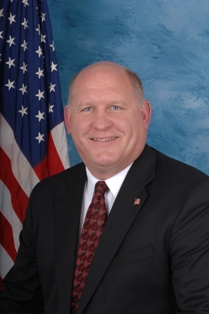By: U.S. Rep. Glenn ‘GT’ Thompson (PA-5)
While definitions of the “American Dream” can be as diverse as the people who make up this great nation, there has been a long-held belief that each citizen should have the equal opportunity to achieve success and prosperity through their own hard work and determination.
Across Pennsylvania’s 5th Congressional District that hard work is realized in the form of successful small businesses and non-profit organizations that do so much for the communities they serve.
While many of these success stories are to be celebrated, a harmful federal proposal from the U.S. Department of Labor stands to marginalize business growth, create additional compliance, limit employment opportunities, and negatively impact a nonprofit organization from fulfilling their mission.
Currently, companies or organizations are required to pay overtime for all employees who make $23,660 or less per year.
On Dec. 1, 2016, the Department of Labor is scheduled to increase this threshold by 113 percent to $50,440 annually, just less than the median household income across the Commonwealth. Nationally, this will result in nearly five million employees becoming newly eligible for overtime pay.
Hardworking Americans deserve a pay raise and the overtime rules are sorely due for modernization, however, this proposal will not achieve those goals without a flurry of consequences for the workplace and employees.
The rule would subject small business owners to a maze of red tape and could open up law-abiding employers to costly litigation. It will also jeopardize the ability of nonprofit organizations to deliver important services, as more funds would be directed to compliance costs rather than services.
Adjusting overtime requirements so drastically will decrease workplace flexibility, as many employers will shift salaried employees to hourly status, requiring the tracking of hours worked. The elimination of entry-level, salaried management jobs will disappear, reducing opportunities for career advancement. This will not lead to wage growth, but rather fewer family supporting jobs.
As a member of the House Committee on Education & the Workforce, I have been active in addressing this issue. I am deeply concerned with the impacts this proposal could have upon small businesses throughout Pennsylvania. I have participated in numerous hearings and received testimony on the challenges small businesses, students, employers and nonprofit organizations foresee if these new regulations take effect. As a result, we’ve sought clarification on some of the more technical aspects of the proposal and requested an extension of the public comment period. Rather than working in tandem with lawmakers elected to handle our nation’s work place laws, the Department of Labor has denied both requests.
As a result, I have signed on as a cosponsor to several pieces of legislation, including H.R. 4773, the Protecting Workplace Advancement and Opportunity Act, which will prevent the proposed rule from taking effect in December.
H.J. Res. 87, a resolution of congressional disapproval for the Department of Labor rule has moved from the committee and awaits further action of the full House. Finally, I was proud to join my colleagues in filing a motion of disapproval under the Congressional Review Act in order to have the rule repealed.
These initiatives have cast a wide net to ensure that well intentioned employers and their hard working employees are not marginalized. In the midst of an economy that is still struggling, we simply cannot make it harder for small businesses and non-profits to make ends meet.
I will remain committed to promoting solutions that encourage good paying jobs and upward mobility so that everyone can have a fair shot at realizing their American dream.
